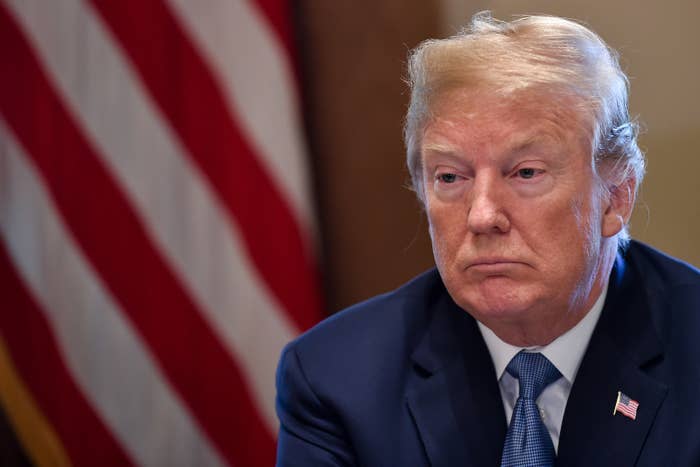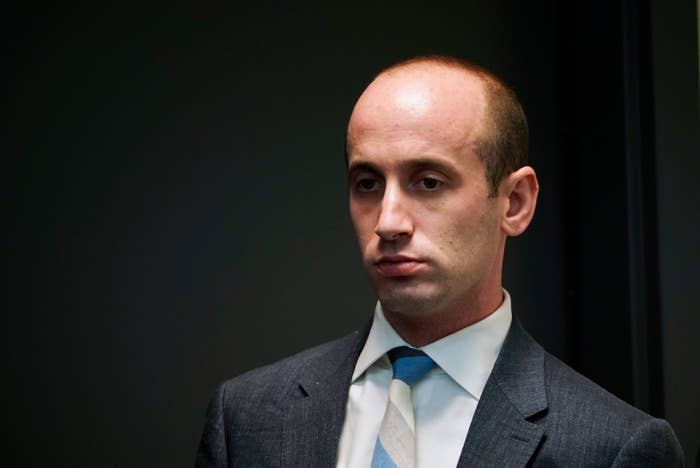
A new rule being drafted by the Trump administration would weaponize the Affordable Care Act and other social programs against immigrants, potentially affecting millions.
For months the administration has been working on a draft rule that would give the government the power to reject legal immigrants from receiving green cards if they had received social services such as food stamps, children’s health insurance, or subsidized health insurance through Obamacare.
If finalized, this new system would create a Catch-22 for many legal immigrants. Technically, people are still legally supposed to buy health insurance, yet this very insurance could be used as grounds to deny them permanent residency.
"Aside from being an attack on immigrants, which is very clear, it’s also an attack on the Affordable Care Act," said Erin Quinn, senior staff attorney to the Immigrant Legal Resource Center.
Estimates of how many people would be affected range from the low millions to over 20 million, and advocates warn the rule change would cause families to preemptively drop out of crucial services like health care or children’s nutrition programs.
It would be the newest in a series of moves led by White House adviser Stephen Miller to curb legal immigration. It would not need congressional approval.

Details of the rule change were first reported by Reuters and Vox in February, and a full 223-page draft was published by the Washington Post in March. This week, NBC News reported that the order is expected to be publicly posted within weeks.
The full details won’t be known until a draft of the rule is posted on the federal register. But the leaked version and reports consistently outline a rule that would make it harder for legal immigrants to become permanent residents if they or their children have subsidized health insurance or take part in any of a number of social assistance programs.
While it would be a drastic change to the immigration system, Congress would not be involved because the underlying law would remain unchanged. Since the early 1950s, the Immigration and Nationality Act has allowed the government to reject residency status to immigrants who were deemed a "public charge" — a term meaning a financial burden on society.
What the Trump rule would do is change how the government decides if someone is a public charge. Currently, the government examines whether someone is likely to be primarily dependent on government support, meaning they get more than 50% of their income through public payments such as welfare.
But crucially, the current system does not factor in noncash support programs such as:
- Health insurance, including Obamacare, Medicaid, and the Children’s Health Insurance Program.
- Nutrition programs such as food stamps; the Special Supplemental Nutrition Program for Women, Infants, and Children; and the National School Lunch and Breakfast Program.
- Housing benefits.
- Child care services.
- Emergency disaster relief.
- Educational assistance and job training programs.
A full list can be found on the US Citizenship and Immigration Services website.
The rationale behind these exemptions is obvious. Past administrations decided it would be bad public policy to discourage people from having access to health insurance, housing, or a healthy meal.
But the new rule could change all of this and count use of any of these services as a strike against someone. The March draft rule would have lowered the bar from someone relying primarily on government support, to someone using one or more public benefits. Use of any such benefit in the three previous years would be weighed as a negative factor.
This applies not just to applicants but also to their dependents. At its broadest interpretation, a person living in the United States on a work visa who marries an American citizen and gets sponsored for a green card could be rejected because their child took part in a school breakfast program sometime during the past three years. That would be true even if the child was a US citizen born in the United States.
It’s possible that the Trump administration will take a less sweeping approach in the rule’s final draft, but when reached for comment Tuesday a Department of Homeland Security official, who would only be quoted as "a DHS official," argued that the current approach breaks with the letter and intent of the law.
"Over the years, previous Administrations have unilaterally rewritten federal immigration law, or taken other policy actions to circumvent the plain meaning of federal statutes. Public charge inadmissibility is clearly a long-standing U.S. law," the official wrote in an email.
The department official asserted, without evidence, that immigrant households using social services are “driving the federal debt and deficit and unfairly taking benefits away from vulnerable U.S. citizens.”
The public charge test applies to people seeking permanent residency and other changes of visa status. But the test is not a part of the naturalization process, meaning people who are permanent residents and looking to apply for citizenship would not be affected.
Immigration advocates say they have heard anecdotal stories about immigrant families withdrawing from public services they are entitled to out of fear that the services will be used against them in the future.
"It represents a massive change to decades of immigration law while going around Congress to do it," said Olivia Golden, executive director of the Center for Law and Social Policy.
There are already some reports of immigrants pulling out of nutrition programs due to fears caused by just the reports of the new rule. According to a Migration Policy Institute study, nearly half of noncitizens live in families that use one or more public benefits, and thus could be affected by the rule change.
The change would largely affect lower-income people. Obamacare plans are subsidized for people earning up to 400% of the poverty line. People earning above that point — about $100,000 in annual income for a family of four — could buy insurance on the individual market without repercussions because they are not being subsidized.
But those earning less than that would have to choose between forgoing insurance or risking their legal residency status. Republicans have repealed the individual mandate to purchase health insurance, but it remains in effect through 2018. However, the mandate has been essentially gutted because the tax penalty has been lowered to $0. Obamacare markets could also face further destabilization if immigrants drop out of the markets in droves.
Marielena Hincapié, executive director of the National Immigration Law Center, said the rule change forces parents to make the "impossible choice" between providing their children with food and health care and ensuring that they have a secure future in the country. "He is attacking families at their core," she said.

